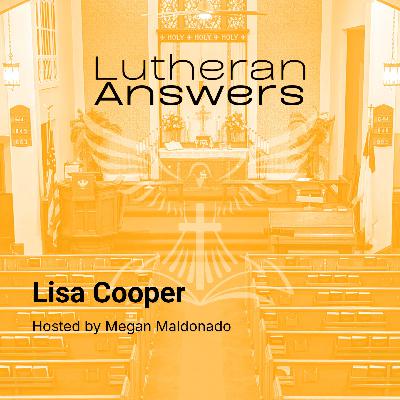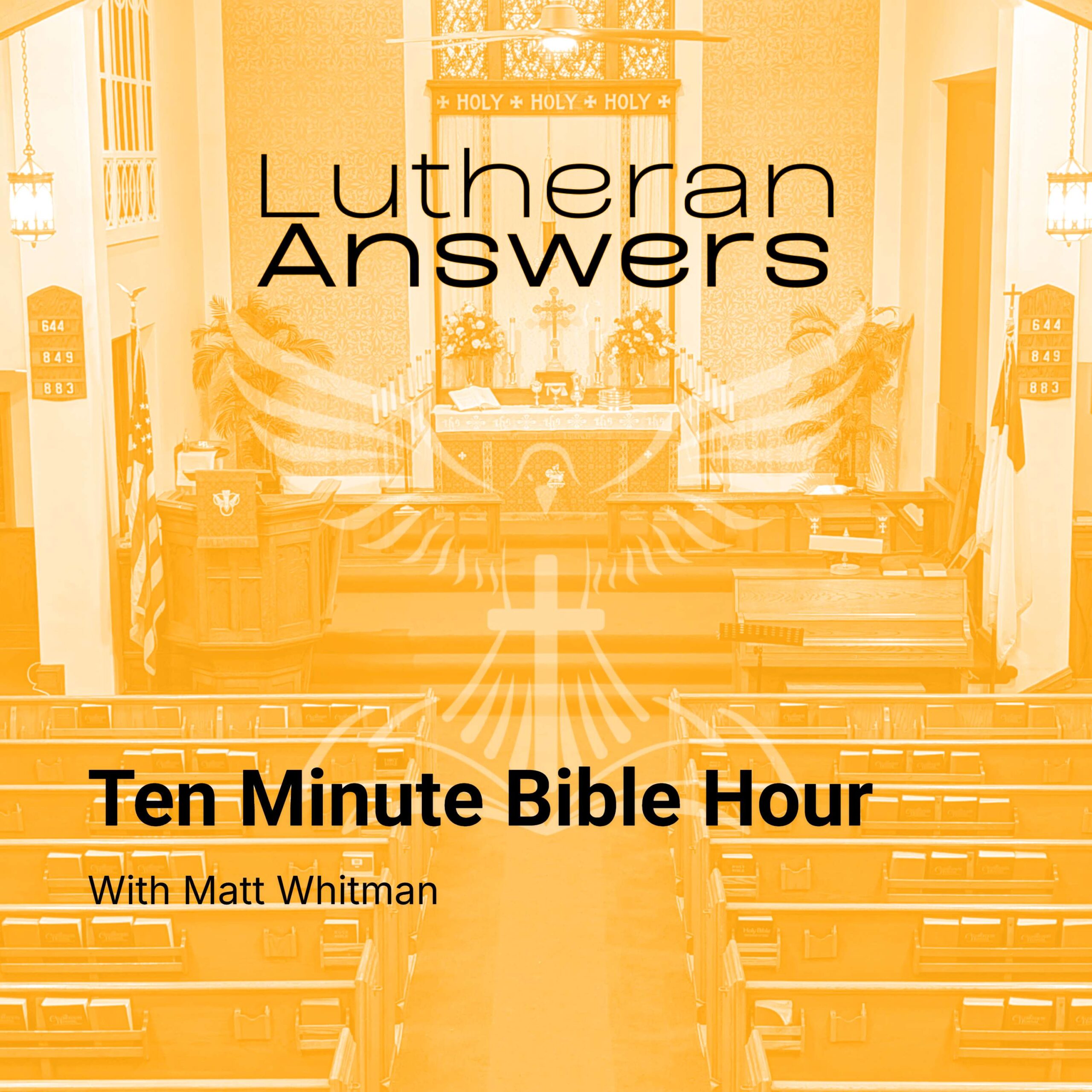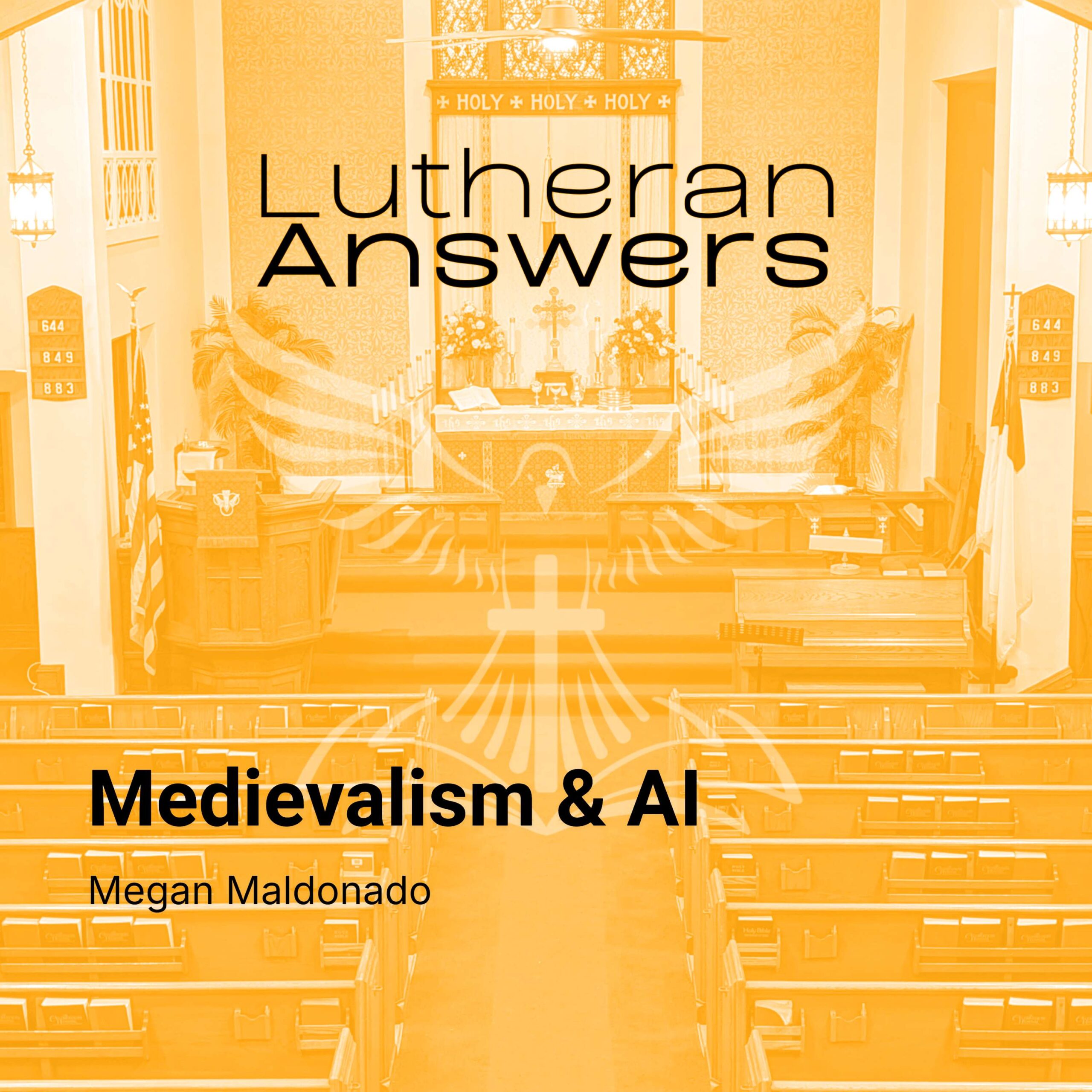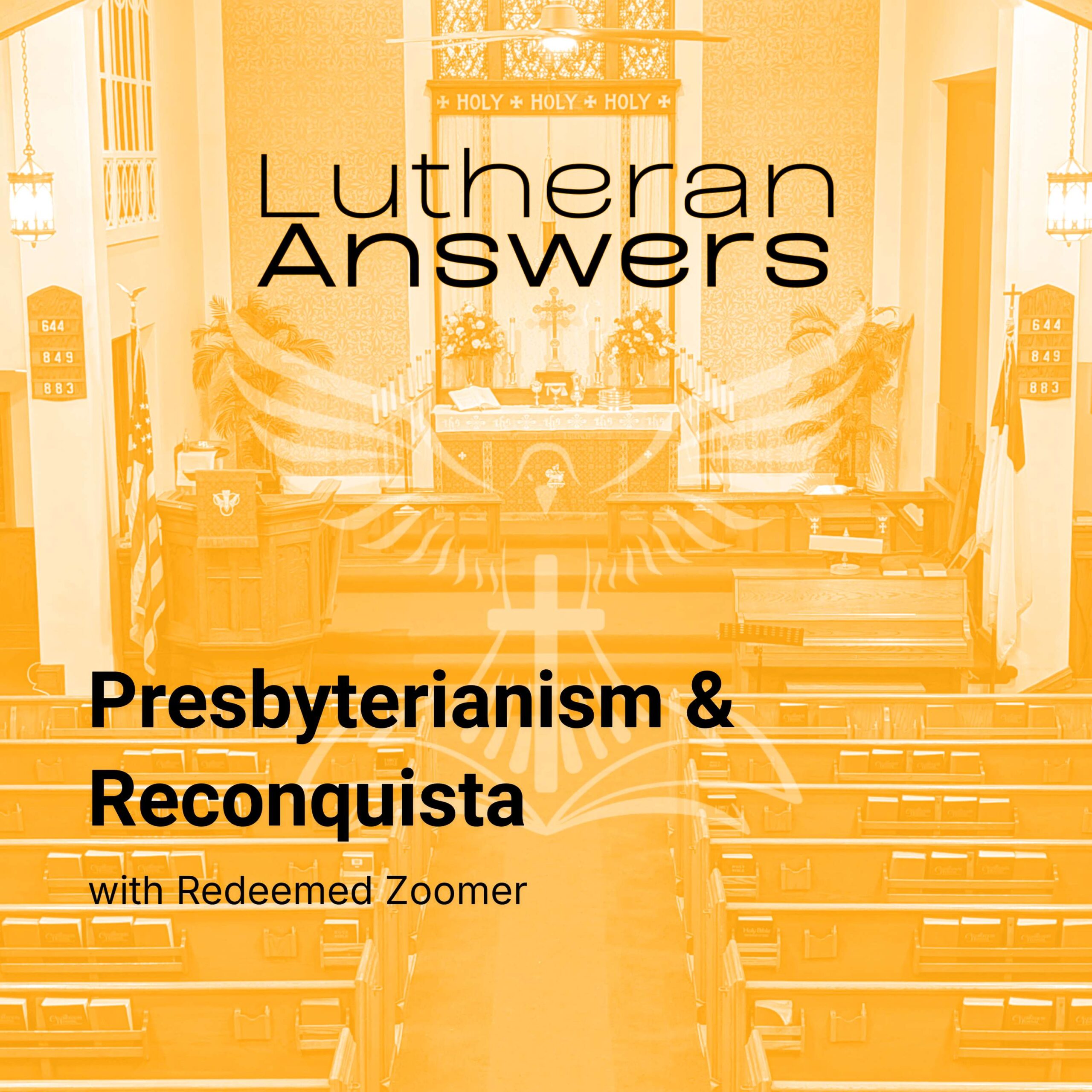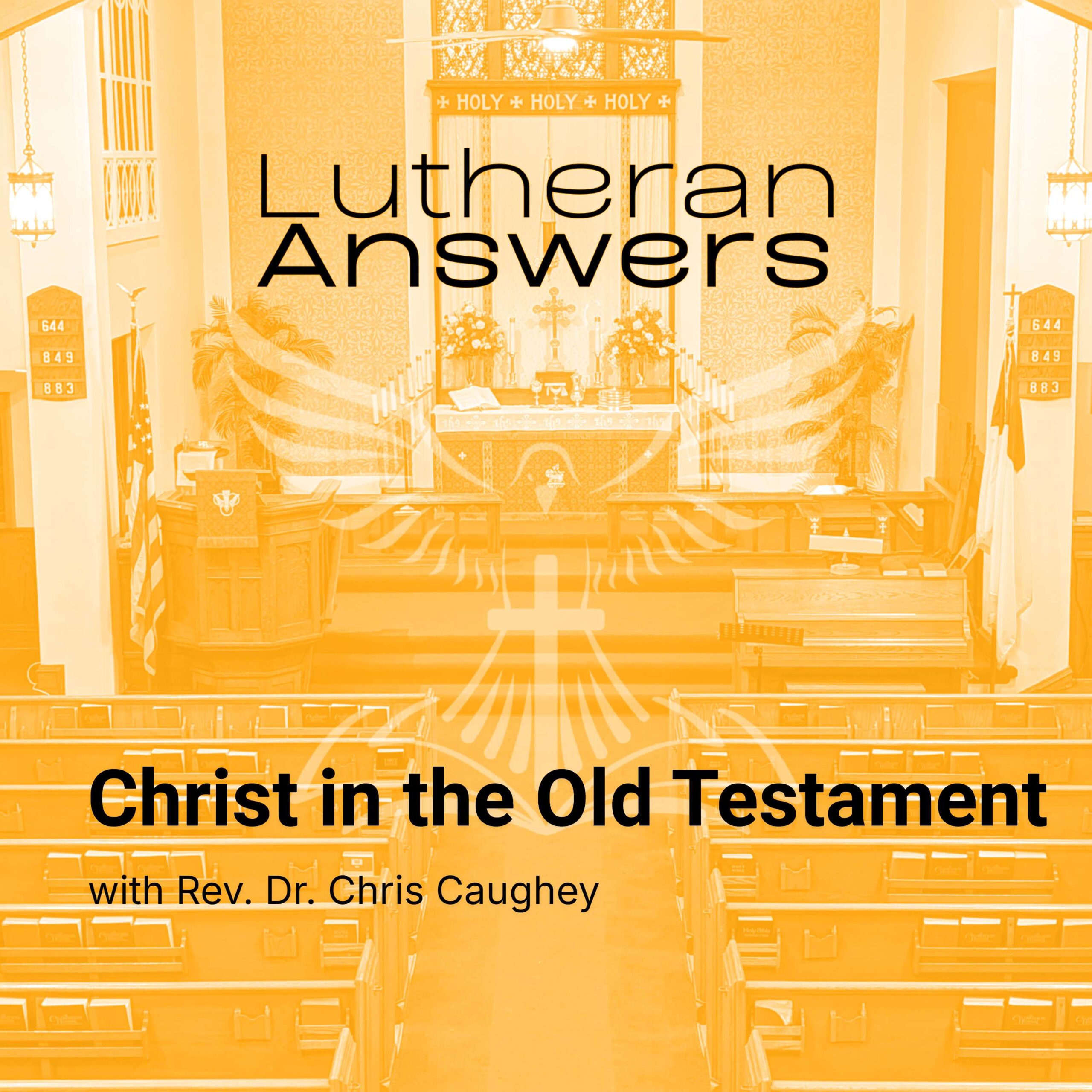Philosophy, with Patrick Flynn
Description
This episode of Lutheran Answers features Patrick Flynn, a Catholic philosopher and author, discussing philosophy, theology, and arguments for and against the existence of God. The conversation begins with an exploration of distinctions in theology, such as the Lutheran view of imputed righteousness versus Reformed perspectives, and transitions into the philosophical utility of distinctions, particularly in arguments for God's existence.
Flynn presents Thomas Aquinas' metaphysical arguments, emphasizing the real distinction between essence and existence, which supports a classical theist understanding of God. He explains Aquinas' cosmological argument and the philosophical necessity of a singular, ontologically independent being. They also discuss the problem of evil, both as a challenge to and support for theism, and critique weak arguments for and against God's existence, particularly those rooted in scientific materialism or misrepresentations of philosophical theology.
The episode emphasizes the limits of human comprehension regarding God's nature, advocating for humility and a recognition of divine transcendence. Flynn introduces his book, which systematically compares naturalistic and theistic explanations for reality's metaphysical features, arguing that theism offers simpler, more robust explanations.
Follow Patrick Flynn
Nifty Links:
Click Here to Check Out the Store
Greatest Theology Newsletter on the Planet
Transcript
[00:00:00 ] Remy: This episode of Lutheran Answers is brought to you by our sponsor, Dial A Podcast. Dial A Podcast, proud sponsor of Lutheran Answers, provides a simple yet powerful solution to bring your church's sermons and Bible studies closer to those who might be a step away from the digital world. Getting started with a local telephone number is easy, allowing anyone to listen to your content with just a phone call at their convenience. It's an excellent way for congregations of all size to extend their reach. Get started with a 30 day risk free trial at dial a podcast.com and ensure no one misses out out on your church's messages.
I had actually just read a thing today by a Scandinavian Lutheran pastor where he was talking about how a lot of the critiques leveled against Protestantism, generally by Rome and generally by the Orthodox, a lot of their critiques of our soteriology, tend to disappear when you take the tact that God did not impute righteousness to us, that God doesn't impute righteousness to us, because this is a big point of contention between a lot of Protestants and a lot of the other apostolic traditions is the idea of imputed righteousness. And he points out that nowhere, at least on the now on the Presbyterian end and on the Reformed end, the Westminster Confessions do specifically state that God imputes righteousness to people.
But he points out that the Lutheran Confessions do not say this. The Lutheran Confessions say that God imputes faith to people, that God gives us the gift of faith, and then he nurtures that faith and then he counts that faith as righteousness. And like, what an important distinction that is because then we get away from the like, legal fiction theory or whatever where God just pretends you're righteous.
[00:01:59 ] Patrick: Yes. And I think that's a distinction that makes a difference. What facilitated this for the listeners who are just hopping in, as we were. It's funny we're going to be talking about philosophy, but we started off kind of trashing philosophy, right? Sometimes a lot of philosophers are, are clever without necessarily being wise and they play the distinction game, right, where they just make a bunch of distinctions. But one can, can ask, is this a distinction actually makes a difference? And sometimes it does. Sometimes the sort of the finest little distinction can make all the difference in solving like a huge problem.
So in one sense, philosophy can be like the most useful thing ever because it can help you to hunt around for that. And by distinction we just mean that there's, there's a breaking of identity. That's all distinction means, like that this thing is in some sense not that thing. And there's many distinctions, right? There's conceptual distinctions and virtual distinctions and real distinctions. There's real distinctions with separate separability and real distinctions without separability. So there's lots of distinctions within the family of distinctions. Right? So it can get a little. It can get a little tedious. But eventually, if you do philosophy long enough, you. On the sort of. The good side of it, you realize, oh, wow, okay, now I see why this was. Was necessary because this really helps me to solve, like, this really big issue, this little teeny distinction as you solve this really big issue. Right. So.
So I would. I would encourage people not to be, like, too put off by all the distinction making that philosophers do, because I think there's been huge payoff and real advances and understanding and knowledge have come from that. At the same time, when it comes to just arguing with people on Twitter, it can be. Yeah, it can just be a bunch of.
[00:03:33 ] Remy: Well, so I think the prime example of the thing that gets on my nerves is when.
When I talk to a Calvinist and you say, well, John 3:16 says, God so loves the whole world, because they argue that God only loves the elect, and he doesn't love anyone else, he hates everyone else.
And so you say, well, John 3:16 says, God loves the whole world, that whosoever should believe in him, Whosoever should believe in him. And they say, oh, well, in the Greek, it's better rendered that all those that believe in him. And I'm like, okay, well, that's. I don't know if you know this, but that's the same thing.
That's. That's just.
[00:04:16 ] Patrick: That might be a distinction without a difference. Right.
[00:04:18 ] Remy: That's just a harder way of saying the same thing. So, like, I don't know.
Yeah. So I hate when people do stuff like that. But at the same time, I think a lot of times you'll see someone lay some groundwork, theologically or philosophically, where they'll draw a very careful line and it feels pointless until we start getting into second and third order consequences and we kind of get down the line from this thought, and then it's like, oh, now I see. Now I see why that division was important. Now I see why we.
[00:04:53 ] Patrick: Yeah, yeah. And just to tease how this plays out in philosophical approaches to God, which I know is what we want to explore here, we can look at, you know, St. Thomas and his distinction between the essence of every finite, contingent individual and its existence. Right. Now, this is a controversial thesis, and it's. But it's a. It's a thesis that has been adopted and accepted by some of the most brilliant philosophers and theologians, Catholic and Protestant, right?
And if this distinction is correct and it's a real distinction, so Aquinas is saying this is not just a conceptual distinction, meaning it's not just distinct in how we think about it, but the distinction is in extra reality, extra mental reality itself, right? It's in the thing itself, right?
If that. If he's correct about that, he doesn't just assume it, he argues for it. Several lines of philosophical motivation.
If it's true that it is not of the nature of any, you know, finite individual like myself or you or a rabbit or whatever to exist, that its nature doesn't guarantee, somehow guarantee or demand its existence, well, then this pretty quickly sets you up for a cosmological argument, right? Of, of. Of legitimately asking why does this thing exist? Right? Now the question of why does. Why does this thing exist is legitimate because there's nothing about its nature or essence. Explain that, right? So now you start to look for an extrinsic cause of that thing, right? And what Aquinas does, just to kind of condense one of his approaches to God, is he says, look, if you're going to terminate the hunt for ultimate explanation here, you're going to have to get back to something whose essence just is its existence, a being of pure existence or pure actuality, right? Otherwise you have a sort of causal series where there's this property, the prop. The causal property of existence that is always sort of on land. It's always being borrowed or derived, but there's nothing from which it is ultimately on lend from. And he thinks is. That's. That's absurd. That's not an acceptable philosophical position for various reasons. And then once he has a being that is pure existence within his sort of metaphysical scheme, he thinks you can derive all the traditional divine attributes. You can conceptually unpack divine simplicity and immutability and omniscience and omnipotence. So this is this. But it's all like, in a sense, like this grand philosophical approach to God of Aquinas hinges on a pretty like, fine little distinction, right?
Very fine distinction, right? Now, I think it's also a sort of distinction. It can be motivated through common sense and common experience. But it's certainly it's, you know, it's not something that just occurs to everybody, ri



